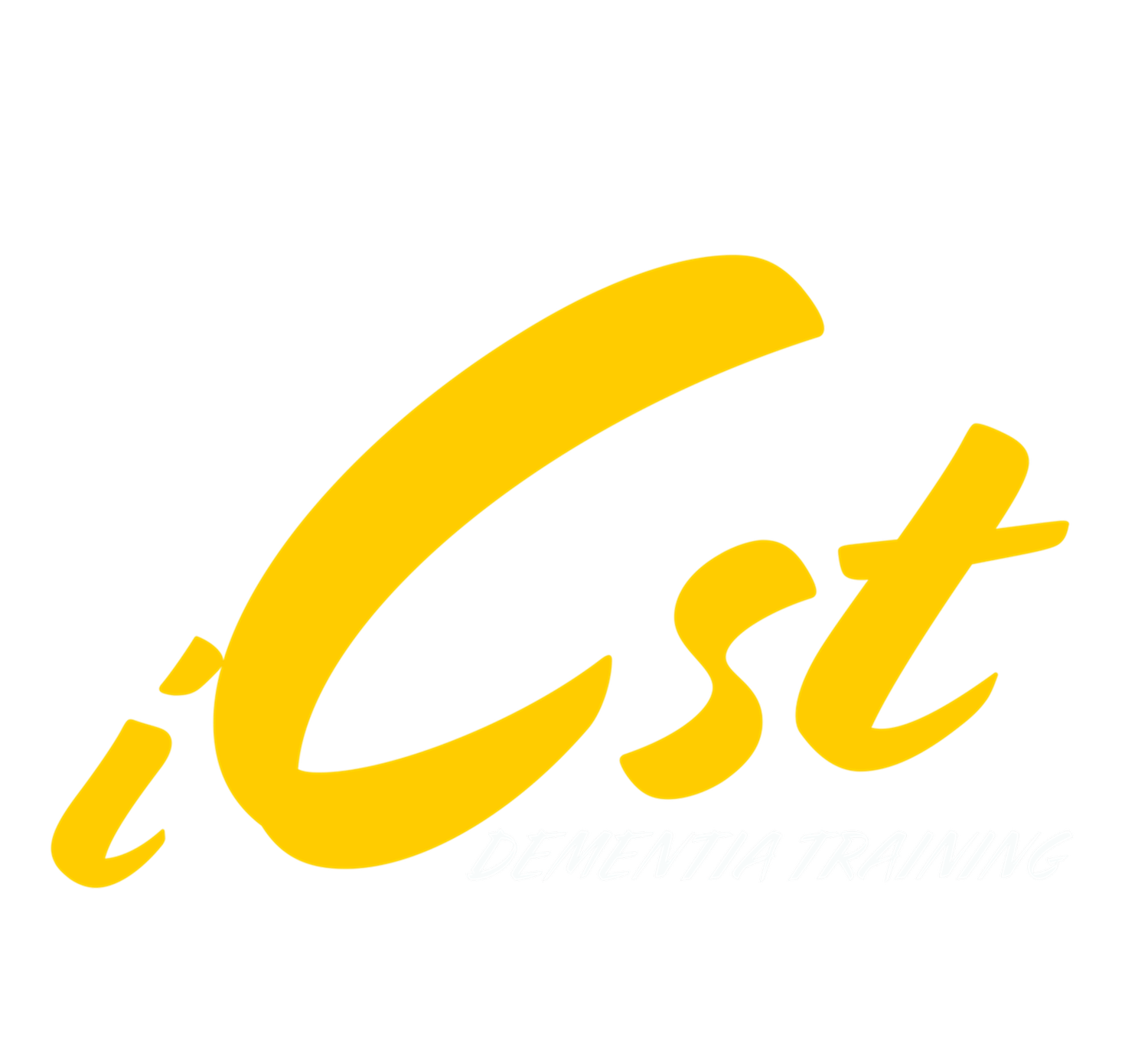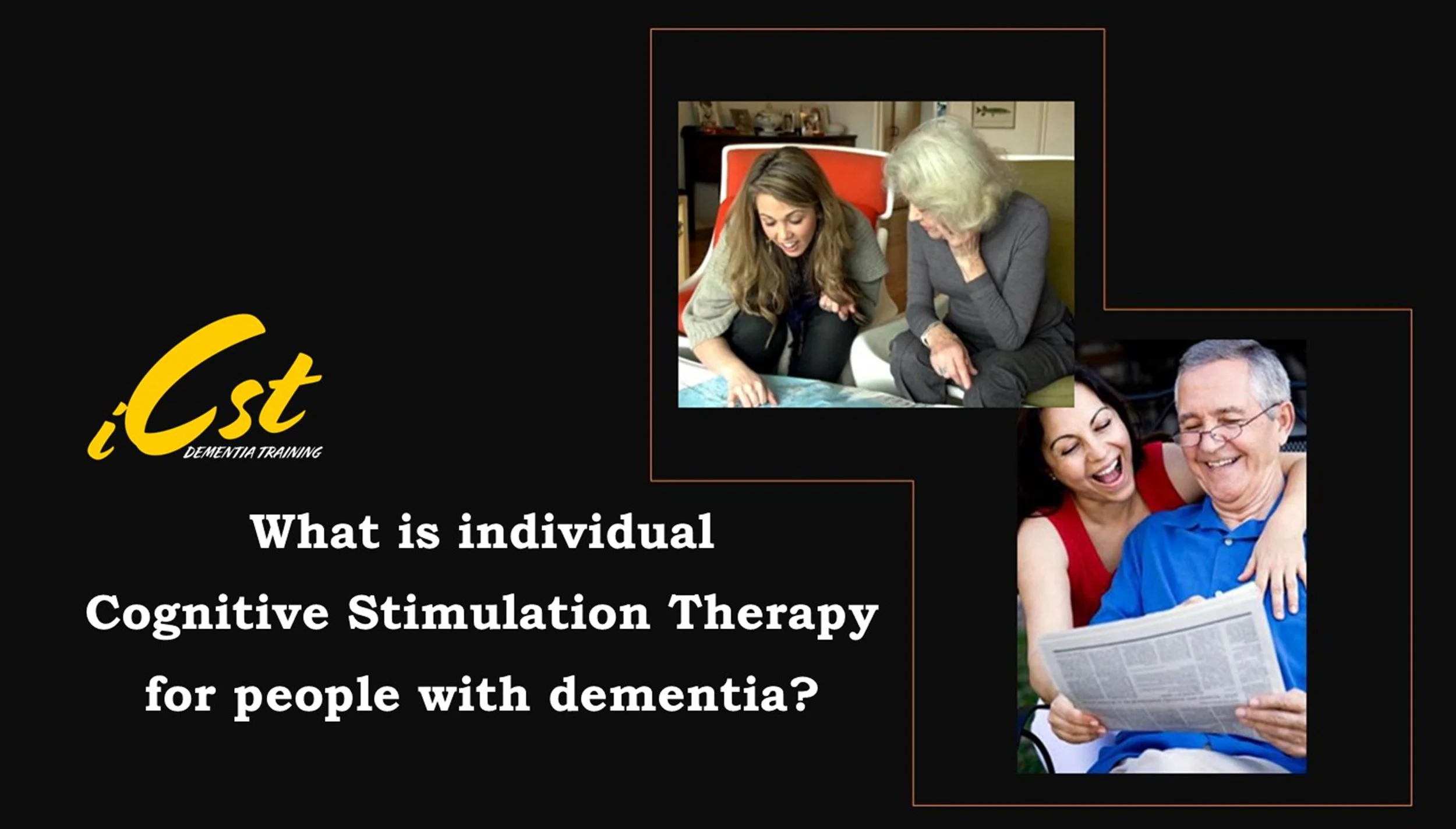What is individual Cognitive Stimulation Therapy (iCST) for people with dementia?
Dr Phuong Leung (Dementia Research Fellow - Fellow of the Higher Education Academy)
What is Individual Cognitive Stimulation Therapy (iCST)?
iCST is an evidence-based cognitive and psychosocial intervention offering mentally stimulating and enjoyable activities to people with dementia. iCST can be delivered by family carers, relatives of the person with dementia or health care professionals,
iCST intervention consists of 75 structured activity sessions with a variety of themes including life story, word games, quizzes, art, reminiscence, discussion of current affairs and being creative. There are iCST key principles must be incorporated in the sessions. (1)
iCST brings many benefits for all involved
Quantitative results
1. People with dementia taking part in iCST had better relationship quality with their carers.
2. Carers delivering iCST reported a significant improvement in health-related quality of life. (QoL)
3. Carers delivering more sessions had fewer depressive symptoms. (2)
Qualitative results
Most people with dementia taking part in the iCST were motivated to keep their mind active and look for more information about mental stimulation.
"Yeah even though like things might not stay with me… but it's brilliant" (Person with dementia) and iCST "made my relative more alert" (Carer)
“It (iCST) made me start thinking about doing what I used to do, which was painting over there, that I've done …I can get up and do things more easily” (Person with dementia).
Maintaining strong relationships between family carers and those they care for is crucial. Carers found iCST helped them to frame conversations.
“… Just opening topics of conversation, maybe listening to her, encouraging her to express herself and talk about things.” (Carer)
People with dementia reported that iCST enhanced the caregiving relationship.
“…You can get a laugh out of it, the barriers come down… We enjoyed that time together!”. (Person with dementia) (3)
From a clinical perspective, reduction in depressive symptoms and improvements in QoL of the carer may result in a low-cost, non-drug intervention. (4) This may prolong their ability to provide care for the person with dementia and contribute to the cost-effectiveness of dementia care. (5) Enhancing the caregiving relationship through iCST may reduce carers’ role constraint and the risk of requiring more support and resources from healthcare services. (6)
iCST intervention
To deliver iCST to people with dementia in a standardised and person centred way
References
1. Yates, L. A., Leung, P., Orgeta, V., Spector, A., & Orrell, M. (2015). The development of individual cognitive stimulation therapy (iCST) for dementia. Clin Interv Aging, 10, 95-104.
2. Orrell, M., Yates, L., Leung, P., Kang, S., Hoare, Z., Whitaker, C.,Orgeta, V. (2017). The impact of individual Cognitive Stimulation Therapy (iCST) on cognition, quality of life, caregiver health, and family relationships in dementia: A randomised controlled trial. Plos Medicine,14(3), 22.
3. Leung, P., Orgeta, V., & Orrell, M. (2017). The experiences of people with dementia and their carers participating in individual cognitive stimulation therapy. Int J Geriatr Psychiatry DOI: 10.1002/gps.4648
4. Yaffe K, Fox P, Newcomer R, Sands L, Lindquist K, Dane K, (2002) Patient and caregiver characteristics and nursing home placement in patients with dementia. 287(16):2090±2097. PMID:11966383
5. Yang, C. T., Liu, H. Y., & Shyu, Y. I. L. (2014). Dyadic relational resources and role strain in family caregivers of persons living with dementia at home: A cross-sectional survey. International Journal of Nursing Studies, 51(4), 593-602.
6. Orrell M, Bebbington P. (1995) Life events and senile dementia. I. Admission, deterioration and social environment change. Psychol Med. 25(02):373±386.


